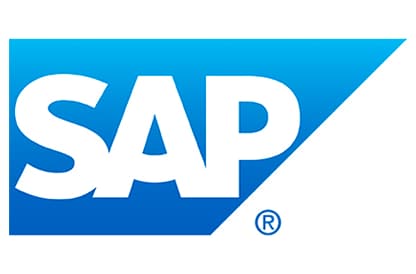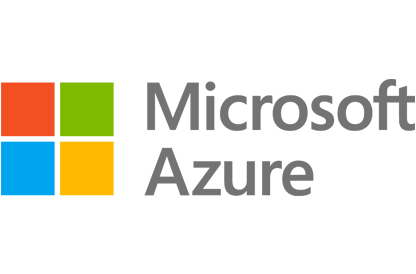Why OpenText
Why OpenText
Overview Why OpenText
OpenText brings decades of expertise to help you unlock data, connect people and processes, and fuel AI with trust
Manage and connect data
Unify data seamlessly across your enterprise to eliminate silos, improve collaboration, and reduce risks
AI-ready information
Get AI-ready and transform your data into structured, accessible, optimized information
Built-in security and compliance
Meet regulatory and compliance requirements and protect your information throughout its lifecycle
Empowering people
Overview Empowering people
OpenText helps people manage content, automate work, use AI, and collaborate to boost productivity
Customers
See how thousands of companies around the world are succeeding with innovative solutions from OpenText
Employees
Our people are our greatest asset; they are the life of the OpenText brand and values
Corporate Responsibility
Learn how we aspire to advance societal goals and accelerate positive change
Partners
Find a highly skilled OpenText partner with the right solution to enable digital transformation
How we compare
Content Management
Service Management
Deploy anywhere
Overview Deployment options
Explore scalable and flexible deployment options for global organizations of any size
Sovereign cloud
Local control. Global scale. Trusted AI
Private cloud
Unlock the value of the cloud while maintaining control and compliance
On-premises
Maintain full control of your data on your own infrastructure
Public cloud
Protect, scale, and use business information in your cloud of choice
AI leadership
Overview Aviator AI
See information in new ways
OpenText™ Aviator™ AI
AI that understands your business, your data, and your goals
OpenText™ MyAviator
Say hello to faster decisions. Your secure personal AI assistant is ready to get to work
OpenText™ Business Network Aviator™
Gain better insights with generative AI for supply chains
OpenText™ Content Aviator™
Power work with AI content management and an intelligent AI content assistant
OpenText™ Cybersecurity Aviator™
Improve your security posture with AI cybersecurity and agile threat detection
OpenText™ DevOps Aviator™
Enable faster app delivery, development, and automated software testing
OpenText™ Experience Aviator™
Elevate customer communications and experiences for customer success
OpenText™ Fax Aviator™
Turn every fax into instant action with AI
OpenText™ Service Management Aviator™
Empower users, service agents, and IT staff to find the answers they need
Aviator AI
Overview Aviator AI
See information in new ways
OpenText™ Aviator™ AI
AI that understands your business, your data, and your goals
OpenText™ MyAviator
Say hello to faster decisions. Your secure personal AI assistant is ready to get to work
OpenText™ Business Network Aviator™
Gain better insights with generative AI for supply chains
OpenText™ Content Aviator™
Power work with AI content management and an intelligent AI content assistant
OpenText™ Cybersecurity Aviator™
Improve your security posture with AI cybersecurity and agile threat detection
OpenText™ DevOps Aviator™
Enable faster app delivery, development, and automated software testing
OpenText™ Experience Aviator™
Elevate customer communications and experiences for customer success
OpenText™ Fax Aviator™
Turn every fax into instant action with AI
OpenText™ Service Management Aviator™
Empower users, service agents, and IT staff to find the answers they need
Analytics
Overview Analytics
Predict, act, and win with real-time analytics on a smarter data platform
Business Network
Overview Business Network
Connect once, reach anything with a secure B2B integration platform
Content
Overview Content
Reimagine knowledge with AI-ready content management solutions
OpenText™ Content Aviator™(AI)
Supercharge intelligent workspaces with AI to modernize work
Cybersecurity
Overview Cybersecurity
Integrated cybersecurity solutions for enterprise protection
OpenText Cybersecurity for SMBs & MSPs
Purpose built data protection and security solutions
OpenText™ Cybersecurity Aviator™(AI)
Reinvent threat hunting to improve security posture with the power of agile AI
DevOps
Overview DevOps
Ship better software—faster—with AI-driven DevOps automation, testing, and quality
Experience and Fax
Overview Experience and Fax
Reimagine conversations with unforgettable customer experiences
OpenText™ Experience Aviator™(AI)
Transform customer communications with private generative AI
OpenText™ Fax Aviator™(AI)
Turn faxes into workflow-ready data with AI
Legal Tech
Overview Legal Tech
Make smarter decisions with AI-powered legal software and services
OpenText™ eDiscovery
Accelerate eDiscovery with AI-driven speed and precision
OpenText™ Investigation
Optimize strategy with early case assessment and investigation tools
OpenText™ Core Insight
Get smarter eDiscovery with advanced TAR and automated document review
OpenText™ Core Legal Hold
Automate legal holds to eliminate risky and time-consuming processes
OpenText™ Legal Knowledge Management
Unlock knowledge and legal insights across content silos
Observability and Service Management
Overview Observability and Service Management
Get the clarity needed to cut the cost and complexity of IT operations
OpenText™ Service Management Aviator™(AI)
Redefine Tier 1 business support functions with self-service capabilities from private generative AI
APIs
Overview APIs
Build custom applications using proven OpenText Information Management technology
OpenText™ API Services
Build it your way with OpenText Cloud APIs that create the real-time information flows that enable custom applications and workflows
Device and Data Protection
Overview Device and Data Protection
Protect what matters, recover when it counts
Unified Endpoint Management Tools
- OpenText™ Endpoint Management
- OpenText™ ZENworks Suite
- OpenText™ ZENworks Service Desk
- OpenText™ ZENworks Configuration Management
- OpenText™ ZENworks Endpoint Security Management
- OpenText™ ZENworks Full Disk Encryption
- OpenText™ ZENworks Endpoint Software Patch Management
- OpenText™ ZENworks Asset Management
Solutions
Trusted Data & AI
Overview Trusted Data & AI
Secure information management meets trusted AI
OpenText AI Data Platform
A unified data framework to elevate data and AI trust
OpenText™ Aviator™ Studio
A place where you can build, deploy, and iterate on agents in your data's language
OpenText Discovery
A set of tools to help ingest data and automate metadata tagging to fuel AI
OpenText Data Compliance
A suite of services and APIs that make governance proactive and persistent
OpenText Aviator AI Services
Professional services experts who help you on your AI journey
Information Reimagined
Overview Information Reimagined
Get greater visibility and sharper insights from AI-driven information management. Ready to see how?
Knowledge reimagined
Transform daily work with enterprise content management powered by AI
Service Management reimagined
Cut the cost and complexity of IT service management, AIOps, and observability
Connections reimagined
AI-powered B2B integration for supply chain success
Conversations reimagined
Drive value, growth, and loyalty with connected customer experiences
Engineering reimagined
Agile development and software delivery? It only seems impossible
Security reimagined
Cybersecurity for the Enterprise
Decisions reimagined
Unlock insights with AI data analytics
Artificial Intelligence
Overview Aviator AI
See information in new ways
OpenText™ Aviator™ AI
AI that understands your business, your data, and your goals
OpenText™ MyAviator
Say hello to faster decisions. Your secure personal AI assistant is ready to get to work
OpenText™ Business Network Aviator™
Gain better insights with generative AI for supply chains
OpenText™ Content Aviator™
Power work with AI content management and an intelligent AI content assistant
OpenText™ Cybersecurity Aviator™
Improve your security posture with AI cybersecurity and agile threat detection
OpenText™ DevOps Aviator™
Enable faster app delivery, development, and automated software testing
OpenText™ Experience Aviator™
Elevate customer communications and experiences for customer success
OpenText™ Fax Aviator™
Turn every fax into instant action with AI
OpenText™ Service Management Aviator™
Empower users, service agents, and IT staff to find the answers they need
Industry
Overview Industry solutions
Improve efficiency, security, and customer satisfaction with OpenText
Energy and resources
Transform energy and resources operations with cloud, cybersecurity, and AI
Financial services
Boost customer experience, compliance, and efficiency with AI
Government
Reimagine your mission with government-secure information management
Healthcare and life sciences
Improve care delivery and patient engagement with AI-powered solutions
Legal
Modernize legal teams with automated, AI-powered legal tech solutions
Manufacturing
Modernize manufacturing operations and logistics to reduce costs and ensure compliance
Retail and consumer goods
Enhance consumer engagement with omnichannel retail solutions and AI
Enterprise Application
Overview Solutions for Enterprise Applications
Run processes faster and with less risk
Services
Services
Overview Services
Achieve digital transformation with guidance from certified experts
Professional Services
Modernize your information management with certified experts
Customer Success Services
Meet business goals with expert guidance, managed services, and more
Support Services
Turn support into your strategic advantage
Managed Services
Free up your internal teams with expert IT service management
Learning Services
Discover training options to help users of all skill levels effectively adopt and use OpenText products
Professional Services
Overview Professional Services
Modernize your information management with certified experts
Customer Success Services
Overview Customer Success Services
Meet business goals with expert guidance, managed services, and more
Support Services
Overview Support Services
Turn support into your strategic advantage
Managed Services
Overview Managed Services
Free up your internal teams with expert IT service management
Learning Services
Overview Learning Services
Discover training options to help users of all skill levels effectively adopt and use OpenText products
Partners
Find a Partner
Overview Find a partner
Find a highly skilled OpenText partner with the right solution to enable digital transformation
Cloud Partners
Overview Cloud Partners
OpenText partners with leading cloud infrastructure providers to offer the flexibility to run OpenText solutions anywhere
Enterprise Application Partners
Overview Enterprise Application Partners
OpenText partners with top enterprise app providers to unlock unstructured content for better business insights
Partner Solutions
Overview Partner Solutions
Discover flexible and innovative offerings designed to add value to OpenText solutions
Resources for Partners
Overview Resources for Partners
Discover the resources available to support and grow Partner capabilities
Support
Overview Customer Support
Get expert product and service support to accelerate issue resolution and keep business flows running efficiently
Resources
Overview Resources
Explore detailed services and consulting presentations, briefs, documentation and other resources
Choose your region:
Europe, Middle East and Africa
Asia–Pacific
What is DevOps Automation?

Overview

DevOps automation is the practice of streamlining and accelerating the software development lifecycle by reducing manual effort and introducing intelligent, repeatable processes. It brings together development and operations teams, breaking down silos and enabling faster, more reliable delivery of applications and services.
By automating tasks—such as code integration, testing, deployment, monitoring, and security—organizations gain efficiency, reduce human error, and deliver higher-quality software at scale.
DevOps automation is no longer about speeding up pipelines—it’s about making software delivery intelligent, adaptive, and enterprise-ready.
DevOps Automation
Why DevOps automation matters?
- Faster delivery: Accelerate release cycles with automated build, test, and deploy pipelines.
- Consistency and reliability: Reduce manual mistakes and ensure repeatable processes across environments.
- Stronger collaboration: Empower developers, IT, and security teams to work together through shared workflows.
- Enhanced scalability: Easily adapt to growing workloads and complex hybrid cloud environments.
- Improved security: Embed automated checks and compliance controls directly into the delivery pipeline.
What are the benefits of DevOps automation?
Organizations that embrace DevOps automation tools unlock:
- Agility: Quickly respond to market demands and customer needs.
- Resilience: Minimize downtime and recover faster when issues occur.
- Productivity: Free teams from repetitive tasks so they can focus on innovation.
- Business value: Deliver better digital experiences that drive revenue and loyalty.
What are the key areas of DevOps automation?
- Continuous integration and delivery (CI/CD): CI/CD automation code builds, testing, and deployments.
- Infrastructure as code (IaC): Provisions and manages environments through scripts and templates.
- Automated testing: Validates code quality, performance, and security with minimal manual effort.
- Monitoring and observability: Uses automation to detect issues, trigger alerts, and remediate faster.
- Security automation (DevSecOps): Integrates automated scanning and compliance checks throughout development.
How does AI enhances DevOps automation?
Artificial intelligence (AI) takes DevOps automation to the next level by enabling systems to not only execute tasks but also learn, adapt, and optimize over time. Instead of simply automating repetitive steps, AI-driven automation can identify patterns, predict issues, and make smarter decisions across the software delivery lifecycle.
Enter Agentic AI
Agentic AI goes even further by introducing autonomous agents that can act proactively, not just reactively. These AI agents can monitor systems, make contextual decisions, and even trigger workflows without waiting for human input. In DevOps, this means:
- Self-healing systems: Agentic AI can detect incidents, diagnose root causes, and automatically apply fixes to restore services.
- Autonomous optimization: Agents continuously fine-tune CI/CD pipelines, infrastructure, and configurations to boost performance and efficiency.
- Adaptive collaboration: AI agents can coordinate between development, operations, and security tools—serving as always-on teammates that keep workflows aligned.
- Continuous learning: Every deployment, incident, and test feeds back into the agent’s knowledge base, making it smarter and more effective with each cycle.
What are key ways AI improves DevOps automation?
- Intelligent monitoring and anomaly detection: AI analyzes logs, metrics, and events at scale to detect unusual behavior early—often before it impacts end users.
- Predictive analytics for performance and capacity: AI forecasts resource needs and predicts bottlenecks, helping organizations scale infrastructure efficiently.
- Automated root cause analysis: AI accelerates troubleshooting by correlating signals across systems and pinpointing the true source of problems.
- Smarter testing and quality assurance: Machine learning generates test cases, prioritizes the most critical ones, and adapts tests as applications evolve.
- AI-driven security (AIOps + DevSecOps): AI models detect emerging threats, automate vulnerability scanning, and adapt defenses in real time.
The future of DevOps: AI + automation
Together, AI and DevOps automation deliver continuous improvement loops: every release, test, and incident becomes training data that makes the next cycle faster and smarter. By combining intelligent insights with automated workflows, organizations can achieve new levels of agility, reliability, and innovation.
How OpenText supports DevOps automation
OpenText provides integrated OpenText™ DevOps Cloud solutions and the OpenText™ Core Software Delivery Platform that help enterprises accelerate software delivery with confidence. From OpenText™ DevOps Aviator and intelligent process automation to secure CI/CD pipelines, OpenText empowers teams to:
- Align strategy with execution
- Optimize resources across hybrid environments
- Scale securely with built-in governance and compliance
- Continuously improve through real-time insights
Experience AI-powered DevOps in action
Resources
Related products
OpenText™ DevOps Cloud
Ship better software—faster—with AI-driven DevOps automation, testing, and quality
OpenText™ Core Software Delivery Platform
Maximize value, reduce risk, and speed delivery with end-to-end DevOps
OpenText™ DevOps Aviator
Embrace AI in DevOps for faster app delivery, development, and automated software testing





